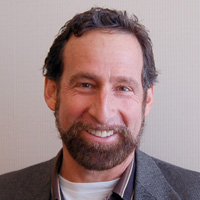Interview With Jeremy Sherman

Courtesy of Google Images
February 25, 2015
Jeremy Sherman holds a Ph.D in evolutionary theory, and is a self-proclaimed “ambigamist”. He writes frequently for Psychology Today, investigating a mix of everyday societal issues and much grander, existential questions. He has lived an exciting life, lobbying in DC, working on charity projects in Guatemala, and spending seven years on the world’s largest hippie commune. His book, Negotiate With Yourself And Win!: Mind Minding for People Who Can Hear Themselves Think, provides insights about decision making and sticking to one’s beliefs. I chose to interview him so that I might better understand some of his convoluted theories and philosophic beliefs about the world.
Q: You coin terms like “the said then done fallacy” and “everyday bipolar disorder”. Where do you draw most of your inspiration from when developing these ideas?
A: I’ve coined over 500 terms. I have a knack for it apparently. I often use the portamento format invented by Lewis Carroll, a conceptual blend or pun, sort of a siamese twin of two concepts boiled into one. I used to be more indiscriminate. Now my rule is no puns without two meanings converging on one. Someone suggests I call my book “The importance of being emergent” a play on the Wilde’s play “The importance of being earnest.” but since it was not the least bit relevant to the book, that’s just the kind of pun I now avoid. I’m attaching my dictionary of 500 words. Its introduction explains why we seem to be reluctant to add social science jargon. Its powerful stuff for both good and ill. I aim to only coin terms for things that don’t already have a name and terms that help overcome terminology’s dark side, for example the power to just label someone a narcissist as a scientific sounding way to condemn them.
Q: You often end your articles with words of advice. Is it ever hard to follow your own advice?
A: “I say what I need to hear.” It’s easier to hold myself to my advice because I espouse it. Just like its easier for the author of a book on diet to stay on his own diet. You become a hypocrite if you don’t. But the said then done article is advice to myself about believing that because I know a piece of advice I naturally follow it. My main advice to myself is “know your inner weasel as best you can. Or as one great put it “philosophers find their true perfection, knowing the folly of humankind by introspection.” I love that.
Q: Some of the questions you pose conflict ideas that we, as a culture, have come to adopt as truths. Is it hard to maintain your beliefs while living in a society that may not agree with you?
A: You know this has gotten much easier over the years. These days I know in my bones that there’s not a rejection left in the world that I couldn’t get over. It’s made me much freer to say what I think. Last week, a fellow researcher said ‘you and I we’re both rebels” and I rebelled against that. If I needed to feel like a rebel that would distort my primary aim, a peculiarly stubborn attempt to think clearly. I don’t tend to write articles that say what’s said before but I cultivate neutrality about an idea’s pedigree. I don’t care if its old, new, common knowledge or rebel talk. I care whether it’s accurate.
Q: You’ve written books and many articles, founded a non-profit lobbying organization, worked on projects in Guatemala, and are constantly researching. How do you balance all of these projects while raising a family?
A: Kids are all grown, and here’s the thing. I inherited money from a guy who encouraged the kind of life I live. It gives me an extraordinary safety net that I use for bolder thinking. I’m not smart so much as free. I can think what I want without fear of losing my livelihood. If I had to struggle to make a living I wouldn’t have had the freedom to ride that many rides in life’s amusement park. And my kids are grown. My youngest turned 25 last week.











